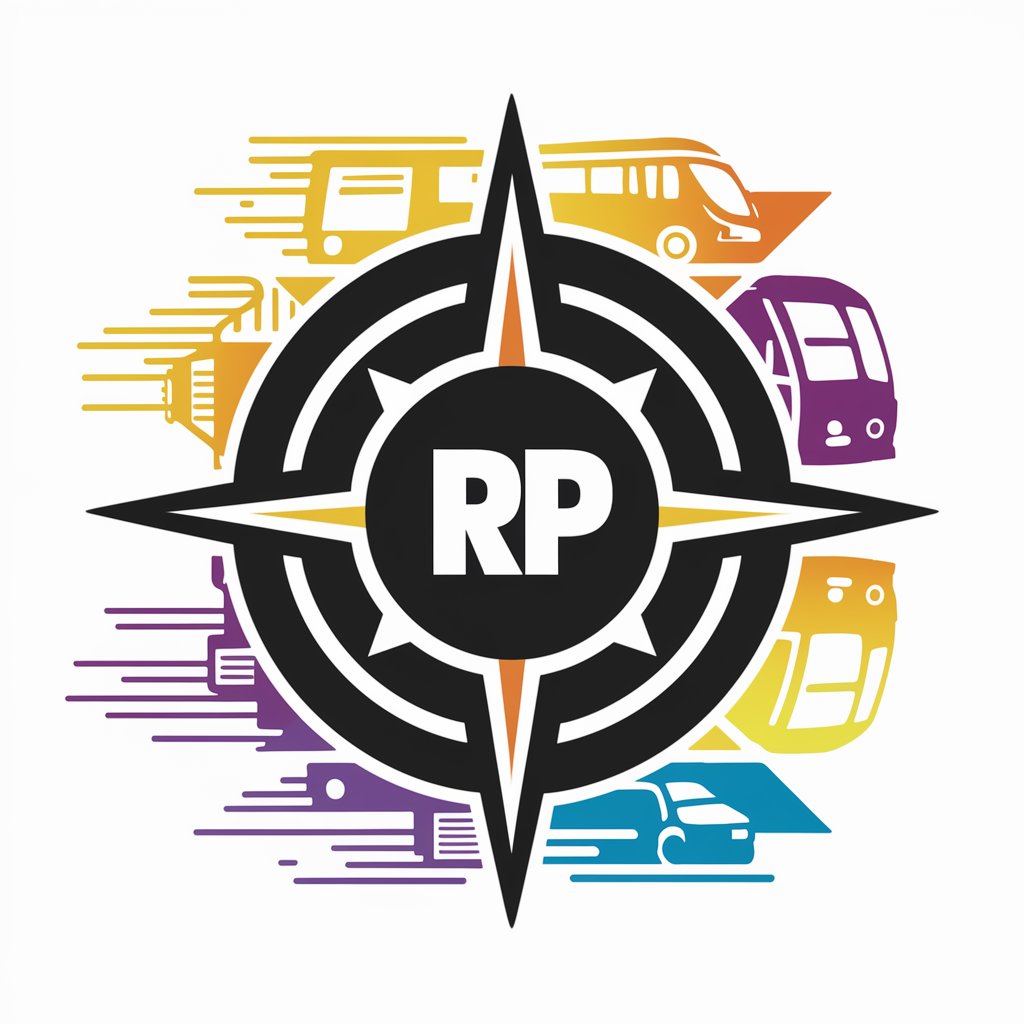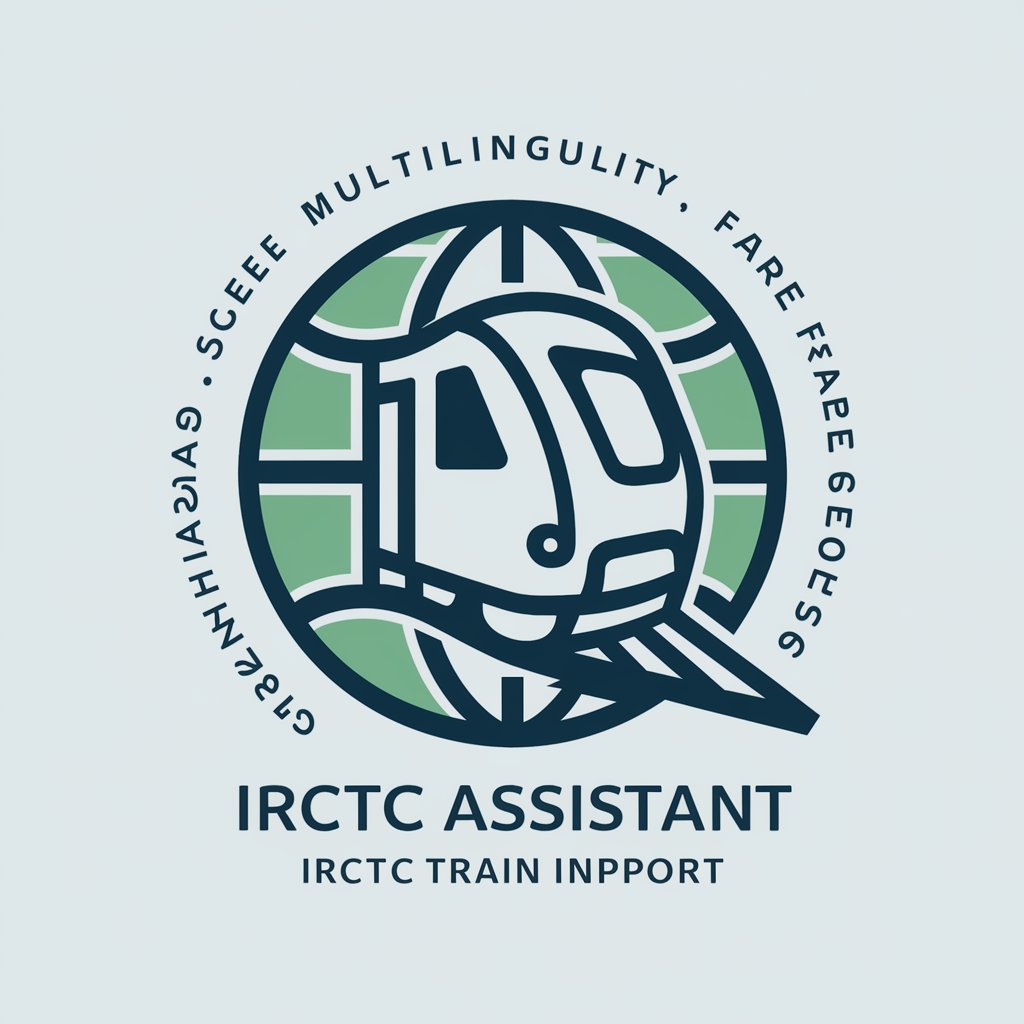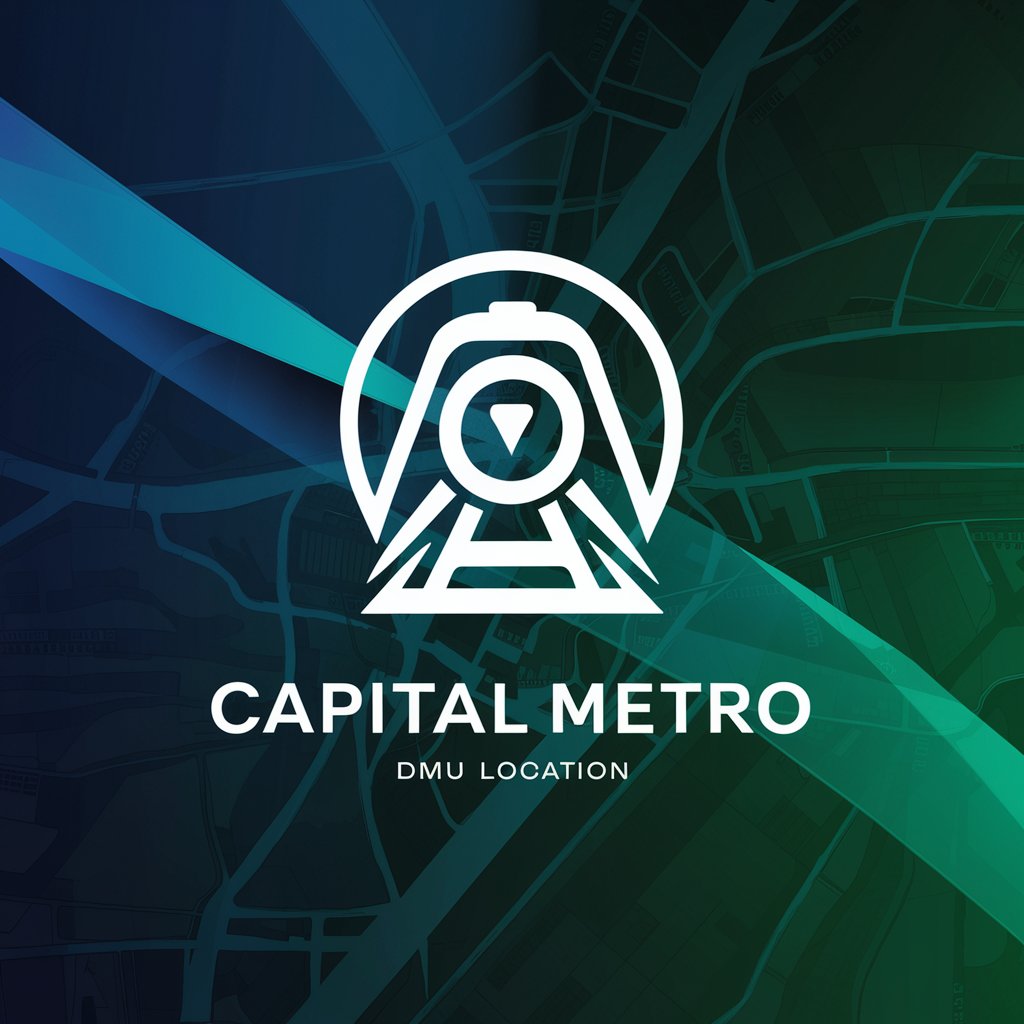5 GPTs for Journey Planning Powered by AI for Free of 2026
AI GPTs for Journey Planning are advanced artificial intelligence tools designed to assist in planning and optimizing travel and logistics. These tools leverage Generative Pre-trained Transformers (GPTs) to provide personalized recommendations, routes, and travel arrangements. By analyzing vast amounts of data, they can offer tailored solutions for various journey-related tasks, making them invaluable in the travel and logistics sectors. Their role is to simplify complex planning processes, enhance decision-making, and improve the overall experience for users by providing data-driven insights and suggestions.
Top 5 GPTs for Journey Planning are: Route Planner,IRCTC Beta - Find Trains, Seats and Fares,British Rail Enthusiast,TrainTalk,Capital Metro DMU Location
Route Planner
Navigate Smartly with AI-Powered Route Planning

IRCTC Beta - Find Trains, Seats and Fares
AI-powered Indian Railway Guide

British Rail Enthusiast
Navigate the UK Rails with AI

TrainTalk
Plan Your Train Journey with AI

Capital Metro DMU Location
Navigate smarter with AI-powered train locations.

Key Attributes and Functionalities
AI GPTs for Journey Planning exhibit unique features that cater to a broad spectrum of travel planning needs. These include adaptive learning to refine suggestions over time, real-time data analysis for up-to-date recommendations, and multi-language support to cater to global users. They can integrate with web search engines, offer technical support, and even generate visual content to enhance planning experiences. Special features also encompass route optimization, cost analysis, and personalized travel itineraries, demonstrating their versatility from simple to complex journey planning requirements.
Who Benefits from Journey Planning AI
The primary beneficiaries of AI GPTs for Journey Planning include travel enthusiasts, logistics managers, and professional planners. These tools are accessible to novices, offering intuitive interfaces for those without coding skills, while also providing extensive customization options for developers and tech-savvy professionals. Their adaptability makes them ideal for both personal travel planning and managing complex logistics operations in the professional realm.
Try Our other AI GPTs tools for Free
Scenic Routes
Discover the future of travel with AI GPTs for Scenic Routes, your ultimate tool for personalized, dynamic scenic route planning.
Rail Enthusiasts
Discover how AI GPTs for Rail Enthusiasts revolutionize the way hobbyists and professionals explore, understand, and innovate in the rail domain.
Parts Lookup
Discover AI-powered GPT tools for efficient parts lookup, designed to streamline procurement and inventory management across industries with advanced identification and analysis capabilities.
Model Information
Discover AI GPTs for Model Information: Your gateway to advanced model analysis, offering seamless integration, real-time insights, and tailored solutions for all user levels.
Decoration Advice
Discover how AI GPTs for Decoration Advice can transform your space with personalized design solutions. Explore tools that cater to both novices and professionals, simplifying and enhancing the decoration process.
Subscription Options
Discover how AI GPTs transform subscription services with advanced automation, personalized content, and strategic insights to enhance customer satisfaction and business growth.
Further Exploration into AI-Driven Planning
AI GPTs for Journey Planning are at the forefront of transforming how we approach travel and logistics. Their ability to offer customized solutions, integrate with existing workflows, and improve with each interaction highlights their potential to revolutionize this sector. User-friendly interfaces ensure that these tools are accessible to a broad audience, further enhancing their appeal and applicability in various contexts.
Frequently Asked Questions
What exactly are AI GPTs for Journey Planning?
They are AI tools that use generative pre-trained transformers to assist in planning and optimizing travel and logistics, offering personalized recommendations and solutions.
How do these AI tools personalize travel plans?
They analyze user preferences, historical data, and real-time information to offer tailored travel itineraries, route suggestions, and accommodation options.
Can non-tech savvy individuals use these tools effectively?
Yes, these tools are designed with user-friendly interfaces that require no coding knowledge, making them accessible to a wide audience.
What makes AI GPTs for Journey Planning stand out from traditional planning tools?
Their ability to process and analyze large data sets in real-time, learn from user interactions, and provide up-to-date, personalized planning solutions sets them apart.
Are there customization options for developers?
Yes, developers can access APIs and programming interfaces to customize and integrate these tools into existing systems or workflows.
How do these tools handle changes in travel plans?
They can quickly adapt to changes, offering alternative suggestions and updates based on new data, ensuring users have the most current information.
Can these tools be integrated with other software or platforms?
Yes, they are designed to be compatible with various platforms and can be integrated into existing systems to enhance functionality and user experience.
What is the future of AI GPTs in Journey Planning?
The future looks promising with advancements in AI technology, leading to even more personalized, efficient, and flexible planning tools that cater to a wider range of travel and logistic needs.